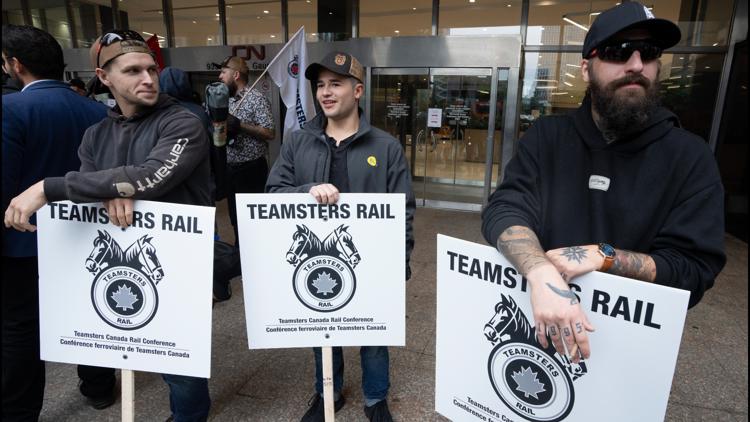Major Freight Railroads in Canada Come to a Halt Amidst Contract Dispute

Recently, all rail traffic in Canada and shipments crossing the U.S. border have come to a sudden stop due to a contract dispute between major freight railroads and their workers. Canadian National and CPKC railroads locked out nearly 10,000 engineers, conductors, and dispatchers represented by the Teamsters Canada Rail Conference after contract negotiations failed to reach an agreement.
This halt in rail service has far-reaching consequences for businesses and consumers across both Canada and the U.S. who heavily rely on railroads to transport goods. Billions of dollars worth of products move between the two countries each month, making this disruption a significant economic setback.
While the railroads have offered to end the lockout if the union agrees to binding arbitration, the situation remains tense as the Canadian government debates whether to intervene. Prime Minister Justin Trudeau expressed concern over the impact on workers, businesses, and consumers, signaling a potential shift in his stance on the issue.
As the lockout continues, various industries are feeling the effects, especially chemical businesses, food distributors, and the auto industry. With supply chains disrupted, companies are at risk of facing major challenges if the situation prolongs.
Despite the disruptions, business leaders emphasize the crucial role that railroads play in the economy and call for swift resolution to the conflict. The government may be forced to step in if the lockout persists, highlighting the urgency of finding a solution that benefits all parties involved.
The negotiations revolve around issues related to scheduling, fatigue prevention, and rest for train crews, showcasing the complexities of reaching a satisfactory agreement. While both sides have presented proposals with wage raises, the core differences lie in the working conditions and rights of the workers.
As the standoff continues, the pressure mounts on all stakeholders to find a resolution that ensures the continuity of rail service and prevents further economic harm.




